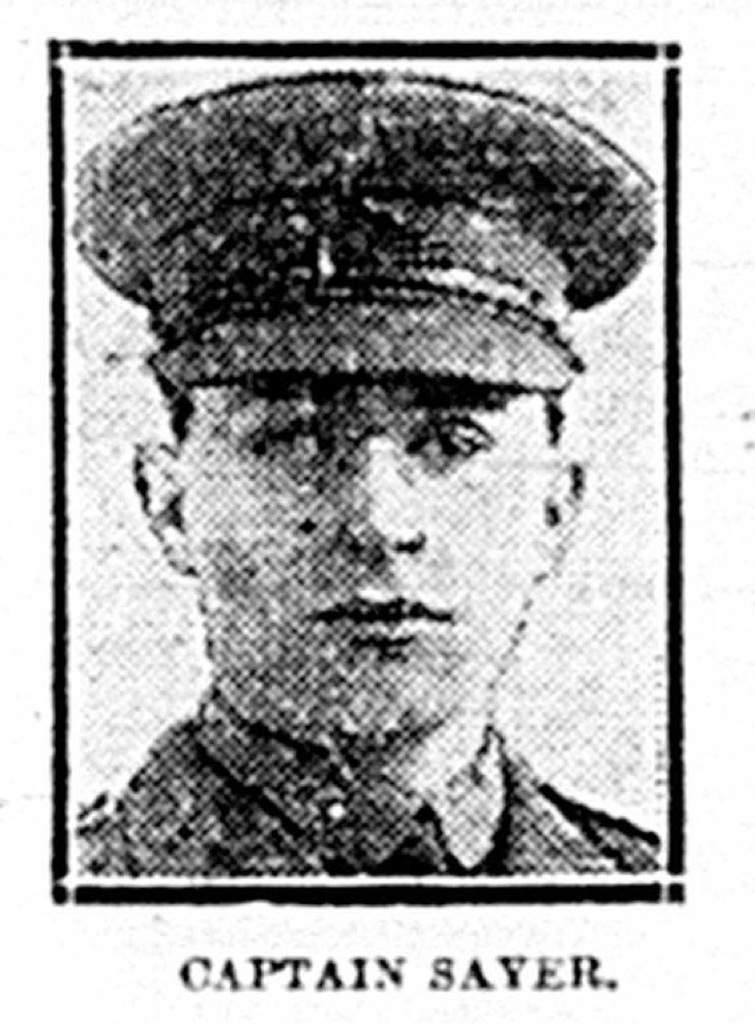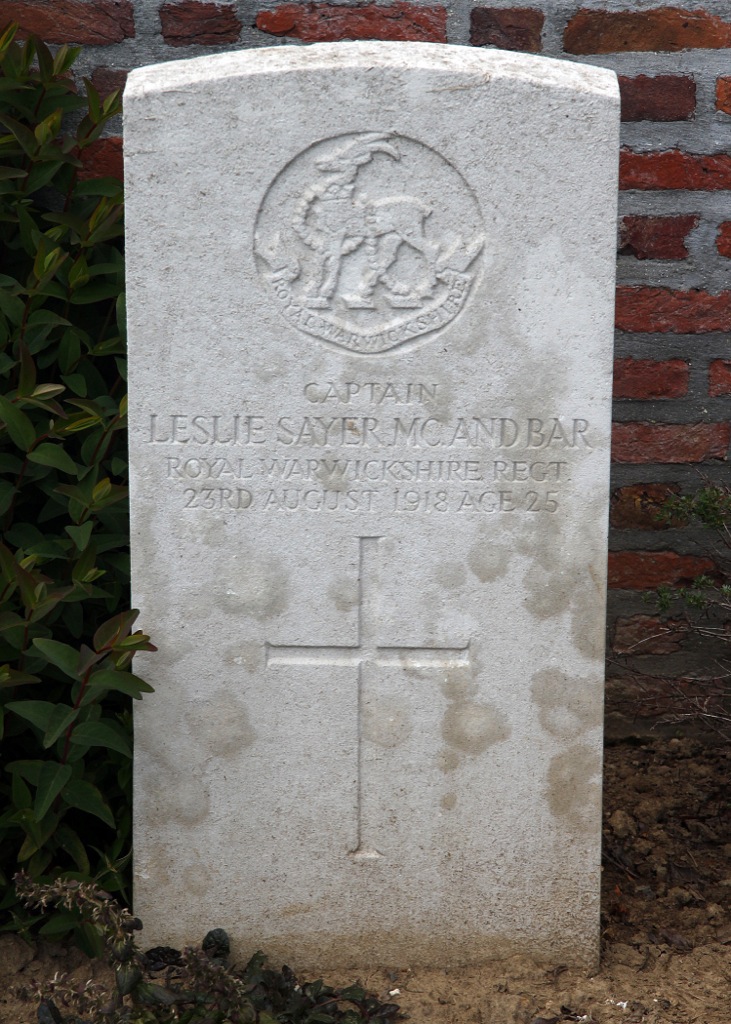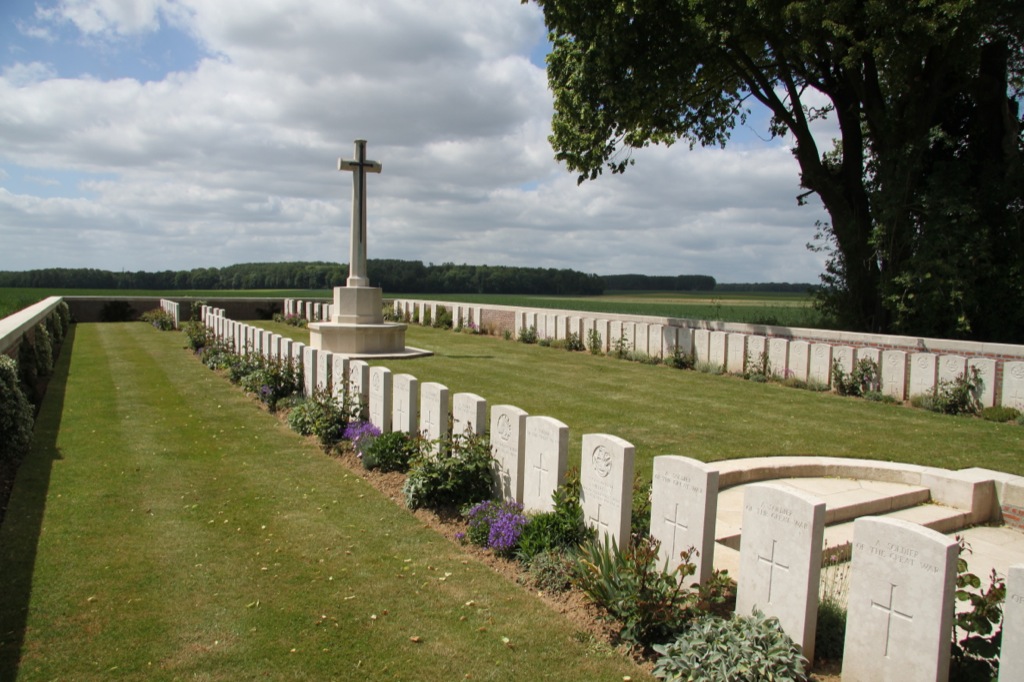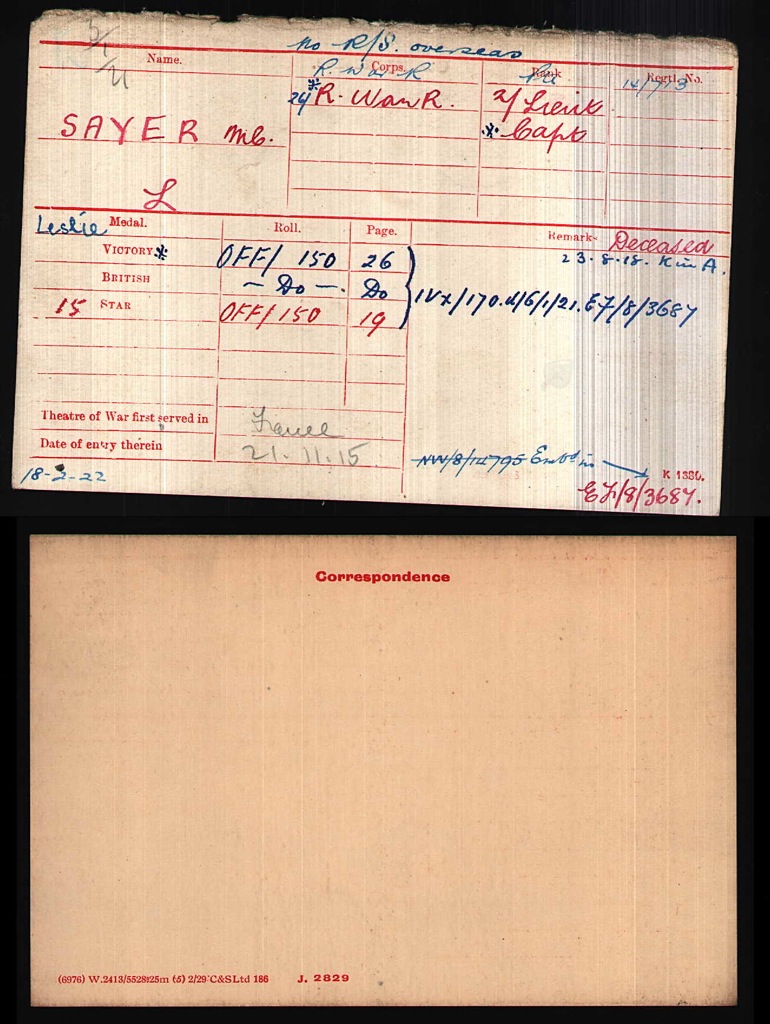Leslie Sayer, born on 15th September 1893, was admitted to King Edward’s School in January 1908. He lived with his mother, Ada, his father, Alderman Henry Sayer, a metal merchant and former Lord Mayor of Birmingham, and four siblings at ‘Beech Croft’, Belle Walk, Moseley.
Although Leslie only studied at KES towards the end of his school career, he performed remarkably well, coming 2nd in his class for Latin and English, and never dropping out of the top five in his other subjects. In his final year, he won proxime (second place) in his Mathematics set. However, he did not feature in the Chronicle, although this was not unusual for boys entering KES higher up in the School.
After leaving School in 1910, Leslie worked as an office clerk in a metal merchant’s office (presumably his father’s). In 1914, he enlisted with the 14th Battalion, Royal Warwickshire Regiment. He obtained his commission as a Second Lieutenant with the 16th Battalion, RWR, and was further promoted to Lieutenant in November 1915. Leslie was involved in all major actions with his Battalion, fighting at Arras, Mametz and Morval, where he was wounded on 27th September 1916; his actions in this battle won him his first Military Cross. After a four-month recovery period, he re-joined the Battalion in Italy. In 1917 he was promoted to Captain, and during an attack on 23rd August 1918 he led his company “with magnificent courage and ability… under very heavy machine gun fire” and made crucial tactical decisions that enabled his company to consolidate and re-organise their new flanking position. For this he posthumously won the bar to his Military Cross having been shot and killed instantly in the same battle, aged twenty-four. He is buried at Shrine Cemetery, Bucquoy, France, and he left his estate of £1,079 to his mother.
Leslie’s brother, Captain Alfred Henry Sayer, also an Old Edwardian, served in the same Battalion as his brother and was wounded only two days before Leslie was killed. Alfred survived the war and also won a Military Cross and bar.




